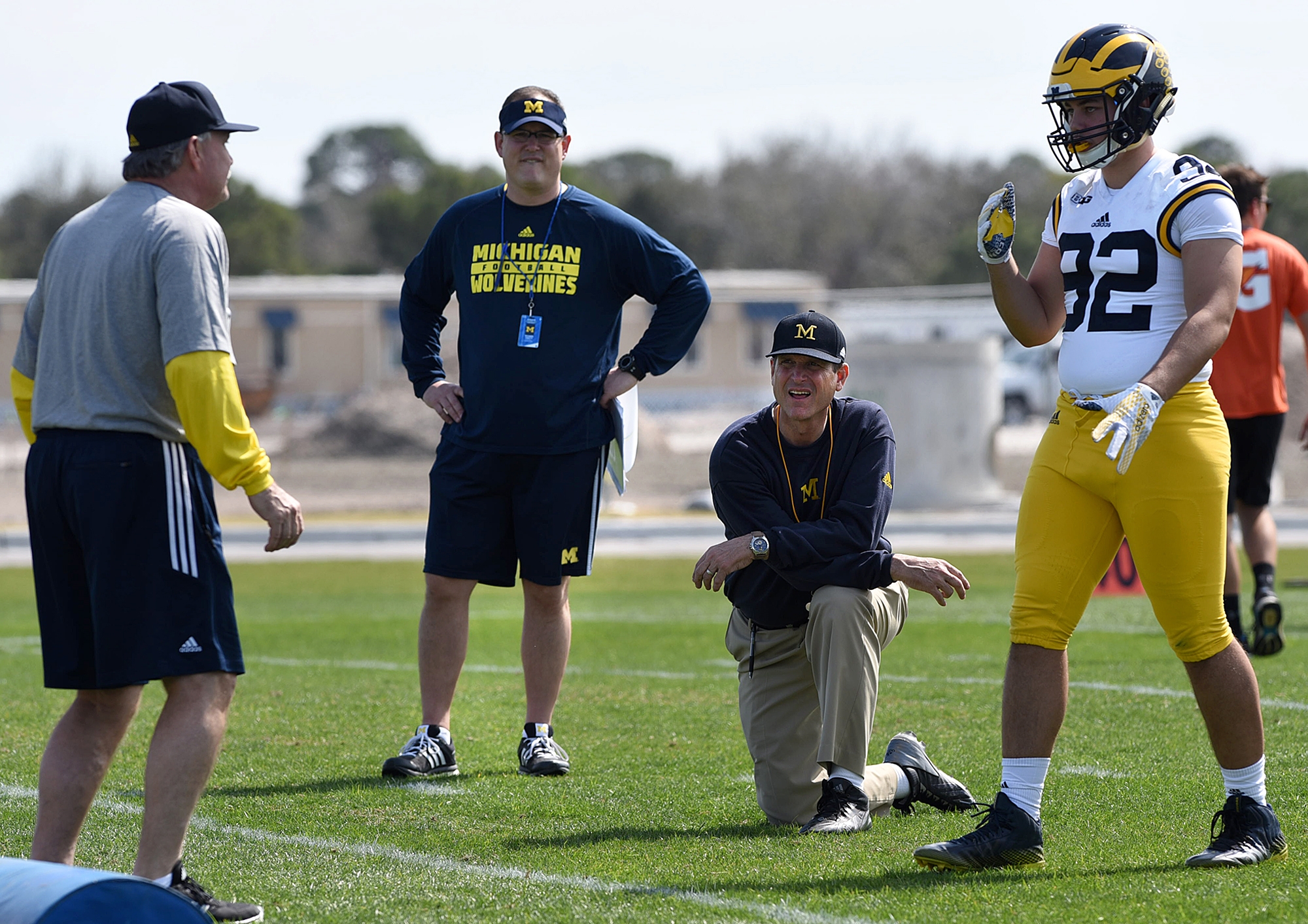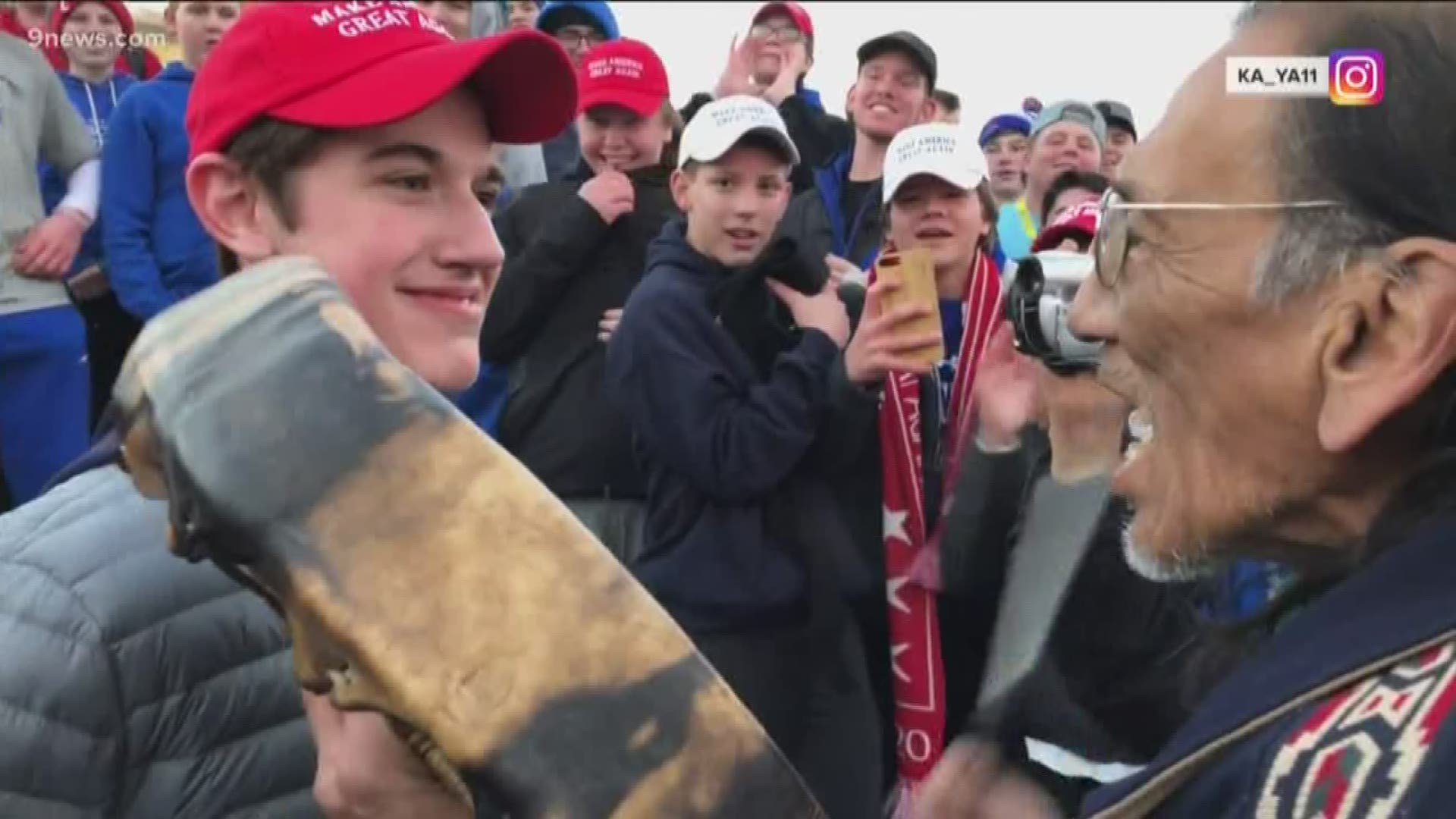![AP NCAA SATELLITE CAMPS FOOTBALL S FBC FILE USA FL [image : 83656660]](http://www.gannett-cdn.com/media/2016/04/28/USATODAY/USATODAY/635974500049883871-AP-NCAA-SATELLITE-CAMPS-FOOTBALL-81380139.JPG)
“What we're talking about is recruiting tours,” SEC commissioner Greg Sankey told reporters last year when the issue first started to bubble. “So, let's just be clear about what we're really talking about here.”
The strategy, of course, was transparent: To turn recruiting into a dirty word, as if somehow the entire enterprise in which these people operate doesn’t revolve around the pristine pursuit of attracting athletes to their school.
“They're not satellite camps,” LSU athletics director Joe Alleva sneered, according to the The Advocate of Baton Rouge. “They’re purely and simply recruiting camps.”
Well, yeah.
But it was interesting that the SEC and ACC — the drivers of legislation to ban satellite camps that was approved by the Division I Council three weeks ago but overturned Thursday by the NCAA’s Board of Governors — never mentioned any concerns over posh player dorms or waterfalls in locker rooms or using female students as “hostesses” or a million other excesses that are aimed solely at getting the attention of 17-year-olds.
No, by golly, when one coach decided to put time and resources into marketing his brand in the South — using a loophole, by the way, that was around for years with nobody lifting a finger to change the rule — that’s when the SEC said enough is enough.
Here’s the bottom line: The SEC’s legislative crusade against satellite camps was the most transparent, cynical, foolish waste of time that college athletics has ever seen. And given the history of the NCAA, that’s saying something.
Though opinion is certainly divided about whether satellite camps are good or bad or whether the rules should be refined in some way to limit them, people throughout college athletics have spent the past several months mystified at the SEC’s lust to outlaw them.
Because not only did it look like the SEC was pushing a nationwide rule change in response to Harbaugh, which seemed petty enough, but there was never any evidence that satellite camps have made one bit of difference to anyone but an under-recruited kid here or there who might get noticed by a coaching staff and offered a scholarship they wouldn’t otherwise get.
In its righteous indignation about the scourge of recruiting camps, all the SEC accomplished was turning Harbaugh (of all people) into a martyr and exposing that the same people who hem and haw and throw up their hands over the issue of paying players can take action with SEC speed when it comes to protecting their own turf.
If Sankey and other SEC leaders thought they were going to position themselves as the conscience of the national recruiting environment, well sorry, but that’s just not a story the nation is going to buy.
Not when you have an entire television network dedicated to the glorification of the SEC brand.
Not when your schools are spending millions of dollars to fill their locker rooms with technological trinkets and barbershops.
Not when your schools are by far the leaders in staffing up with analysts to break down high school game film and create eye-catching digital graphics to send recruits.
Not when one of your schools spends $60,000 to bring a rapper to its spring game.
Not when your schools annually land 10 of the top-25 recruiting classes in the country.
If someone is going to lead the charge in scaling back the hysteria over recruiting, the SEC should probably start with itself.
But that’s exactly the issue. Part of recruiting, and one of the reasons the SEC does it so well, is that it’s all about using the resources available in the way that best fits the needs of your program.
If Harbaugh or anyone else thinks it’s worth the time, money and effort to hold a camp in the South, why shouldn’t they be allowed to do that? That it’s been going on for years in other conferences without SEC participation — while the SEC still dominates the recruiting landscape — suggests the impact probably isn’t that great.
But the SEC made it personal, which means Harbaugh made it personal right back at the likes of Butch Jones, Kirby Smart and Sankey, whose efforts in his first year on the job probably would have been better spent elsewhere than on a legislative push that only led to embarrassment for his conference.
And now that the satellite camp ban was struck down after significant outcry from coaches outside the South and the Department of Justice sticking its nose into the issue, we’ll see if SEC, those owners of the moral high ground in recruiting, can resist the urge to do them bigger and better than Harbaugh ever dreamed.
The likely outcome of all this is legislation next year that sets more defined parameters on how many camps can be held and when they’re allowed during the offseason. Eventually, this “issue” will go away and the big conferences will find something just as silly to fight about. In the meantime, there will be more satellite camps than ever before.
There’s no doubt the SEC puts on the biggest and best show in college football, but apparently having the deck stacked in its favor for years wasn’t enough. There was no reason to pursue this issue other than insecurity and pettiness, and eventually it bit them.
Harbaugh is no more of a sympathetic figure than anyone in the SEC, but somehow they collectively turned him to a symbol of injustice for NCAA rules. That may be harder to do than winning eight national titles in 10 years.
If the goal was to make Michigan's coach into an even bigger hero and make themselves look silly in the process, the SEC has never done a better job.
SCENES FROM SPRING FOOTBALL



